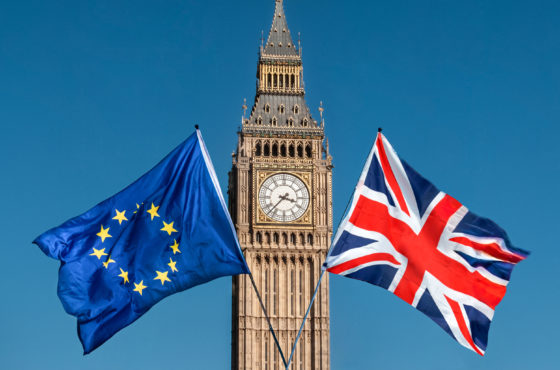How entrepreneurial exporters are being shut out of the Brexit debate
We’re all closely following the news as the saga of Brexit changes seemingly from day-to-day. At the time of writing, the Prime Minister is presenting his new deal to the EU. What happens next is anyone’s guess.
But in among the dire predictions of economic gloom, and anxious media coverage, close observers will have noticed a bit of positive news regarding the UK trade deficit. The deficit (that is, the shortfall between UK imports and exports) narrowed in July 2019. This is significant as it hints at a stronger trading future than widely predicted.
Entrepreneurial exporters and small businesses play a major part in export figures
It’s likely that the trade deficit was decreased when UK businesses chose to use up the stockpiled goods they had already collected before the original Brexit date of 29 March 2019. As they were using goods already in their warehouses, they were buying fewer from abroad, leading to fewer imports.
This is opposite to the state of the trade deficit earlier in the year when businesses were rushing to buy more from abroad in order to stock up. This pushed the deficit much higher. Recent figures from the Office for National Statistics shows that the deficit fell to £2.9 billion by July 2019. This was after an 8.5% fall in imports to £164.4 billion.
All of which is more promising for the UK’s trade position than some would have us believe. However, any analysis or reporting of these figures and what they represent fails to talk about the biggest part of the success – the role UK small businesses have in exports.
Small businesses should contribute to discussion on Brexit
UK small businesses contribute a lot to our country’s exports. And it’s something that isn’t talked about enough. Big businesses continue to dominate headlines as media outlets ask them for opinions on Brexit and what it means to them. But there is little addressing the sole traders, micro-businesses and small business owners despite their importance in the UK’s economy.
It is small businesses that form the heart of the UK’s economy. They contribute to most of our trade footprint. They are innovators, entrepreneurs, job creators and future proofers, and they are the backbone of our economy.
If we look at ecommerce platform Ebay, there are 200,000 small businesses working every day. And 95% of these export products to the rest of the world. Almost two-thirds export to a minimum of ten marketplaces, and exports have increased through Ebay by 25% since 2014.
Major export markets for small businesses through this platform are France, Germany and the United States. Next comes Italy, Ireland and Australia. A major growth area worth mentioning is exporting to the Philippines. This has increased by 20% year on year since 2018. This certainly appears to be a sector that can handle global trade, with or without Brexit.
Support from ecommerce platforms for SME exporters
These ecommerce platforms support and encourage UK small businesses to export. They provide what they need to export simply and successfully. And yet, despite the positivity shown by figures like these, there are few headlines shouting about the success of small and micro business exporters. In fact, there has been little interest from the media, the Government or anyone else into the future of small business exporters in a post-Brexit country.
Even trade lobbies and the Government tend to direct any export support to big businesses. But we shouldn’t ignore the thousands of sole traders, entrepreneurs, small businesses and micro-traders that are working away behind the scenes. Together they collectively reach consumers in 190 markets around the globe.
And this is why I think these vital exporters should have more of a say in the Brexit debate. No matter where you stand on the ongoing discussion about the UK leaving the EU, these entrepreneurial exporters deserve to be part of the debate.




